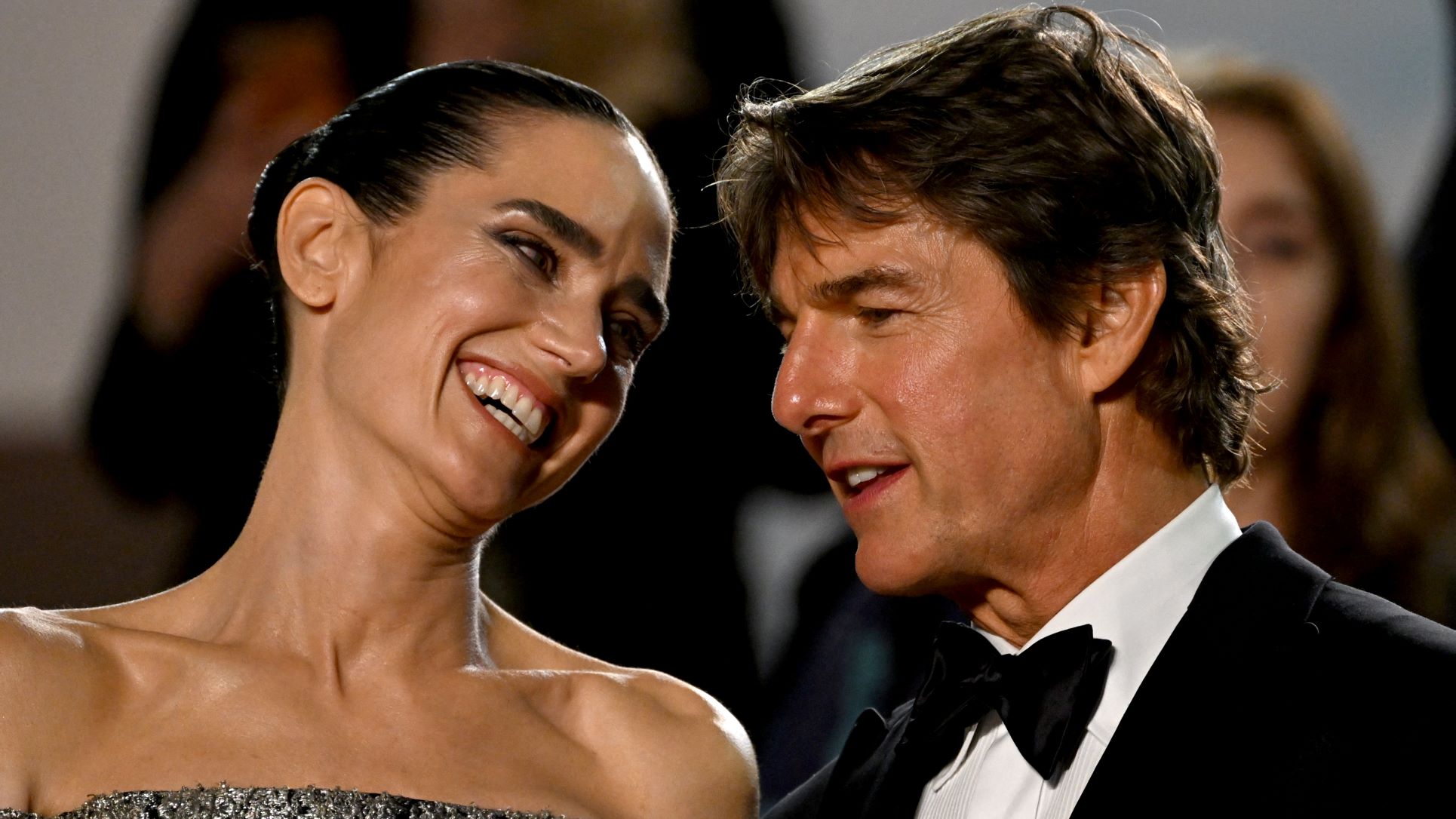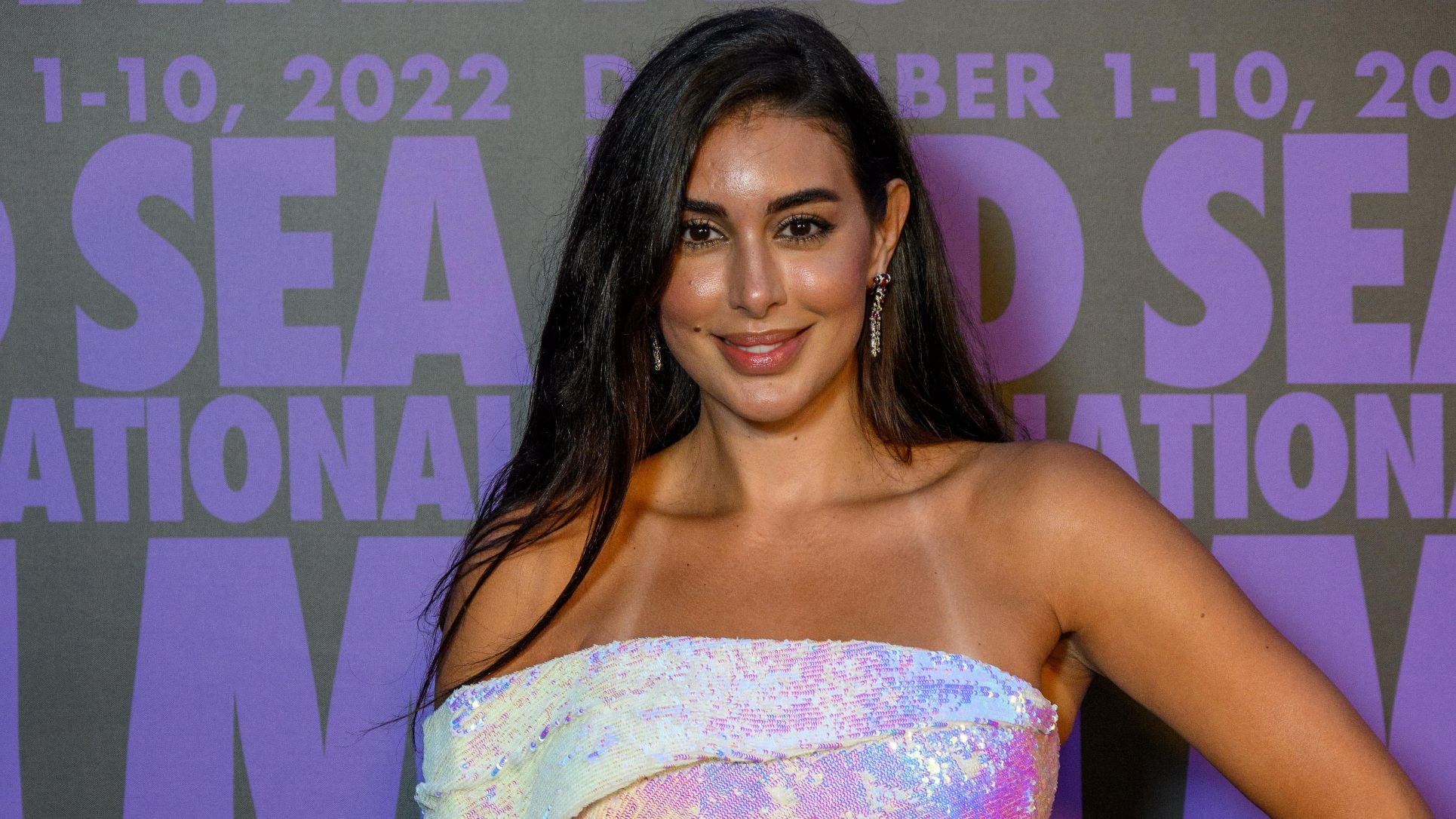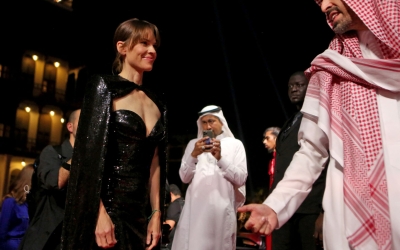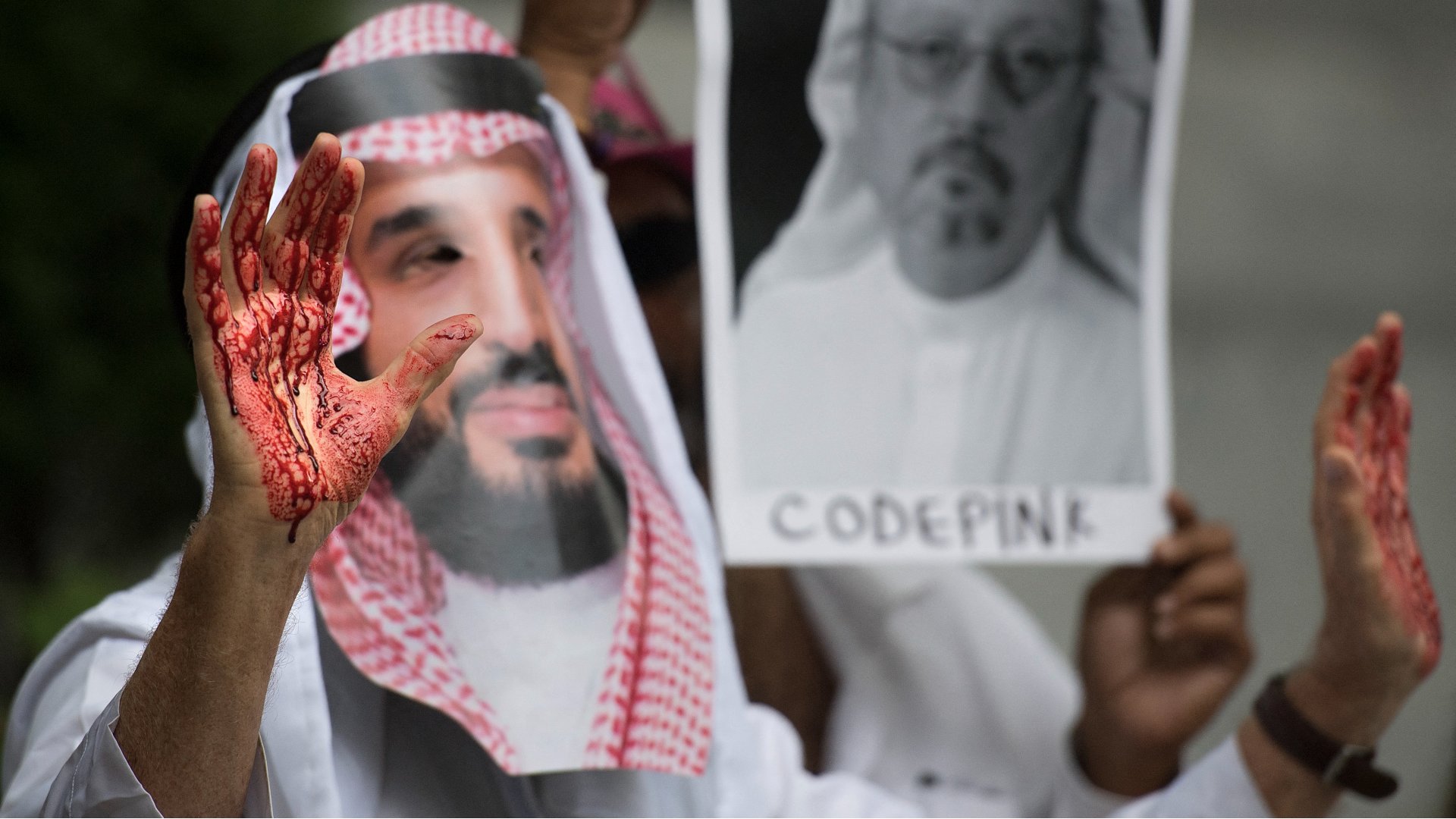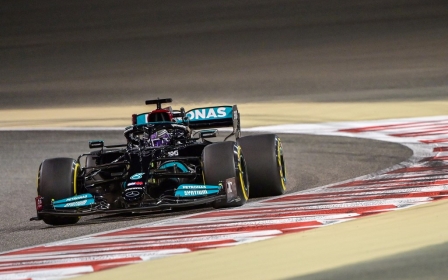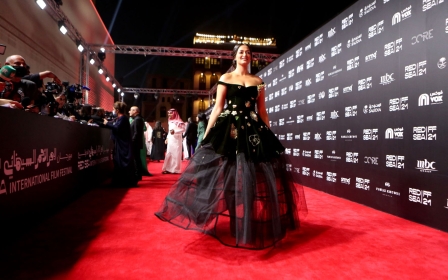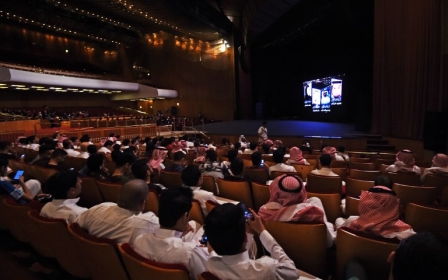Cannes Film Festival: Saudi soft power and money make a splash
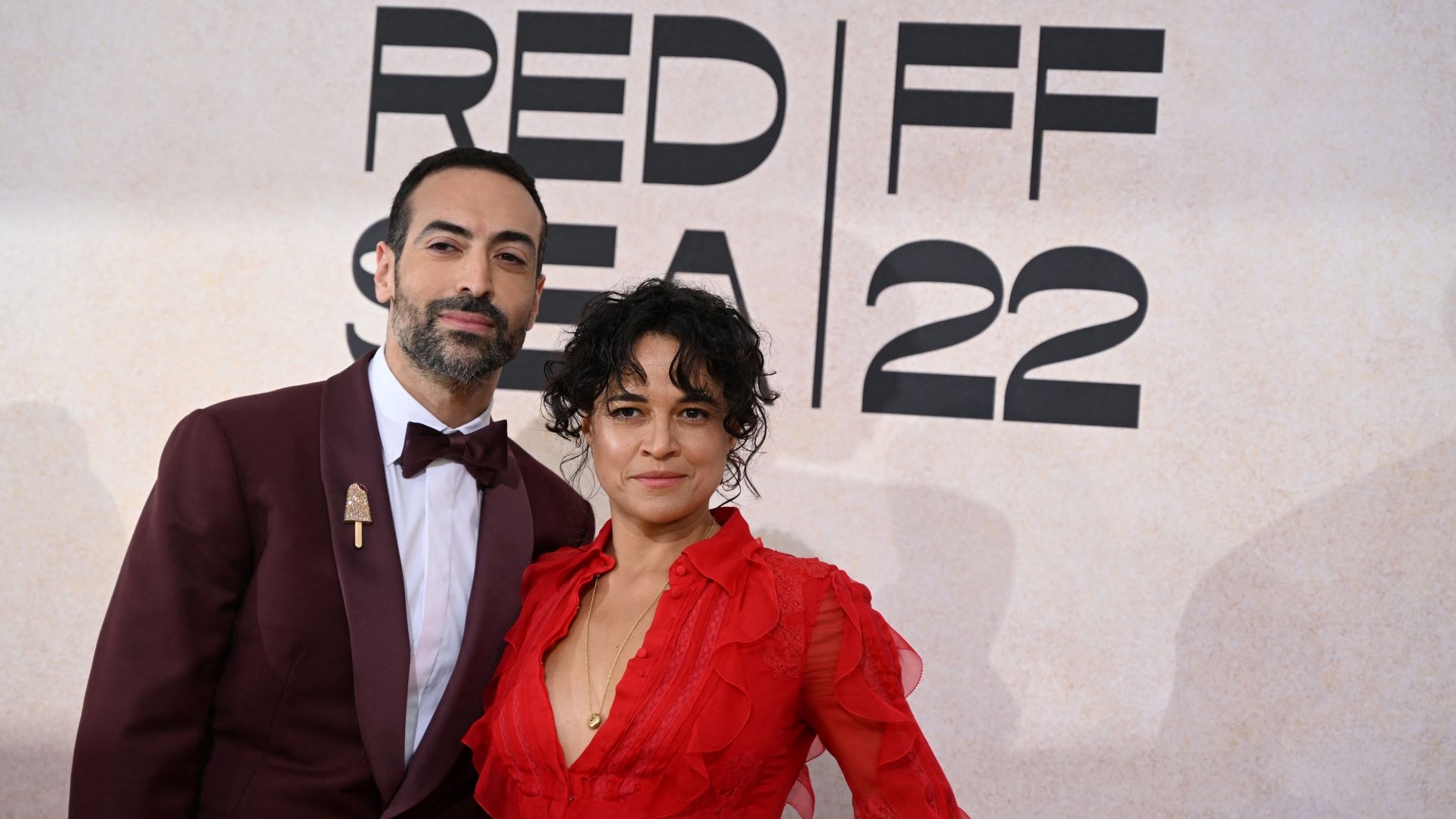
Amid the star worship and awarding of prizes, it’s easy to forget that the Cannes Film Festival is principally an enormous market for selling movies and generally drumming up business.
No endeavour could have worked harder in this regard, at Cannes 2022, than Saudi Arabia’s recently launched Red Sea Film Festival (RSFF), ahead of only its second ever edition.
This year, RSFF splashed out on eye-catching advertising hoardings at Nice Airport - through which all international attendees must pass - and bought the cover of Screen Daily, which is handed out to thousands of delegates every day in the Palais.
Festivalgoers could discuss the Red Sea Film Festival at leisure in the pavilion that had been granted to Saudi Arabia, alongside pavilions from other countries, where it was being promoted by the well-respected publicity agency DDA.
This all adds up to some rather eye-catching activity from a festival whose first ever instalment came late last year - but then again, from the get-go, Red Sea Film Festival appears to have splashed the cash in order to secure influential or starry collaborations from celebrities or respected industry figures.
The festival’s first edition was attended by no less a figure than the Delegate General of Cannes, Thierry Fremaux, and films were programmed by Edouard Waintrop, a former programmer for "Cannes’ Directors’ Fortnight" strand.
Catherine Deneuve was awarded a special honour by the festival, and duly showed up to receive it in a country that routinely represses dissidents and is violating international law if not committing outright war crimes.
Other celebrities attending the launch of a festival in a country whose ruler ordered the murder of Jamal Khashoggi included Clive Owen, Vincent Cassel, and Hilary Swank.
Cassel, who also attended the controversial Formula One race in Jeddah during his stay, offered up the following pro-Saudi soundbite in return for his stay: “I was at the F1 circuit, now I’m here, it’s far from the image we have of this country, we feel that it moves, that there is change.”
That may come as news to Ethiopian migrant workers held in degrading conditions, who claim to have been tortured while in detention.
Saudi Arabia rebrands
The ubiquitous presence of the festival in Cannes, hot on the heels of that starry launch, prompts questions about the ethics of the film world in legitimising an event that appears to whitewash the Saudi regime, and about the financing of the whole operation.
Why is the film industry welcoming a country like Saudi Arabia, with its shocking record on human rights? The contrast with Cannes’s attitude towards Russia could not have been sharper: this year’s festival opened with an official address from Ukrainian president Volodymyr Zelensky, and there were red carpet protests against Russia as well as screenings of the documentary Mariupolis 2 and the Ukrainian director Maksym Nakonechnyi’s debut, Butterfly Vision.
As Middle East Eye has asked before, why is the international community so righteously opposed to Russia but silent on the Middle East?
The other question, about the financing of the operation, is more difficult to answer: Red Sea Film Festival is sponsored by a number of organisations, several of which link back to the state.
The media conglomerate MBC (the Middle East Broadcasting Center), which supports the festival, is majority-owned by the Saudi government. Meanwhile, another sponsor, SRMG (Saudi Media and Research Group), is so closely tied to the Saudi regime of Mohammed bin Salman that it is widely considered an organ of soft power propaganda.
Clearly the festival is not at all independent in its organisation and especially not in its financing, which feels especially disquieting when you consider industry figures currently accepting money from the festival.
Yet various initiatives muddy the waters somewhat, making it difficult to talk about blanket condemnation and boycotts.
DDA publicists speaking to me at the Saudi pavilion in Cannes were eager to trumpet advances made by the festival, highlighting the fact that Saudi audiences were unable to watch films at all until very recently - indeed, cinemas were banned with very rare exceptions from 1983 to 2018, when Black Panther screened at the first newly opened cinema in Riyadh.
Officials vaunted the independence of programmers - who include industry figures such as the film critic Kaleem Aftab and producer Antoine Khalife.
Certainly, the programme in 2021 included some bold titles, from Nithin Lukose’s Paka in the competition section to Intregalde by Radu Muntean or As In Heaven by Tea Lindeburg in other sections.
A healthy dose of films by women were shown, and it seems clear that the festival also supports the work of young filmmakers through the Red Sea Lodge. Publicists claimed that filmmakers are under no pressure to alter or censor their films - although it seems likely that films with too dissident a streak would simply not be selected.
Liberal illiberalism
It’s true that culture can open up regimes to more liberal views - and in the case of the Red Sea Film Festival it looks as if the opportunity to experience art that could not have been screened until four years ago may indeed be revolutionary for audiences.
Yet how can programmers be certain that all of RSFF’s initiatives are undertaken in good faith, and not merely sugarcoating for a festival that is clearly in hock to a tyrannical government?
It would be utterly impossible for the festival to exist on the international scene, and buy the programmers it has, if it did not adhere at least in some areas to various liberal conventions, such as the artistic independence of creators.
It is when those very signifiers of liberalism are used to cover up for all manner of illiberalism that the film industry needs to wake up - how many industry figures have been won over by sweet-talk about the festival’s good work, only to find themselves tacitly abetting an organisation that distracts from Saudi Arabia’s ills?
Meanwhile, representatives of Red Sea at the Saudi pavilion were unable to give me assurances that, for instance, the festival could offer safeguards to LGBTQ+ attendees. This would seem to indicate the limits of the festival’s practices of liberalisation.
Publicists in Cannes seemed particularly aggrieved with a Guardian writer criticising the Red Sea Film Festival without having attended it to see for herself all of the festival’s positive initiatives and its popular outreach - but the question of attending or boycotting an event is a matter of personal ethics. Upon receiving just such an invitation to attend Red Sea Film Festival, I had to be clear that this was an impossibility for me, not least because of being a queer man.
The Red Sea Film Festival will not be able to change the face of culture and social mores in Saudi Arabia while the Saudi regime is given the implicit approbation of the international community in its attitude towards women, imprisonment of protesters, persecution of LGBTQ+ people, mistreatment of migrant workers, crimes against humanity and quashing of journalistic freedoms as evidenced by the killing of Jamal Khashoggi.
The event, for all the good that it may do in the circumstances, is a bandage on an open wound - but it is a bandage that continues to dupe far too many people in the film industry.
A more cynical mind might conclude that some people are not even tricked by the opportunities opened up by the festival but have instead let money speak louder than their conscience.
In another industry altogether, the golfer Greg Norman recently offered an example of somebody’s morality being subsumed by financial considerations, when he was asked about the ethics of holding a Saudi-backed invitational event.
“We all make mistakes,” was his verdict on the killing of Khashoggi, demonstrating perfectly how enough money can buy a blind eye.
The film industry appears to have responded with similar alacrity and dispassion to the emergence of the Red Sea Film Festival, when it was admirably placed - as Cannes showed with its bold response to the war in Ukraine - to offer a stern rejoinder to the tyranny of the Saudi regime.
This article is available in French on Middle East Eye French edition.
Middle East Eye delivers independent and unrivalled coverage and analysis of the Middle East, North Africa and beyond. To learn more about republishing this content and the associated fees, please fill out this form. More about MEE can be found here.


